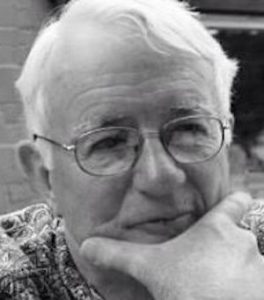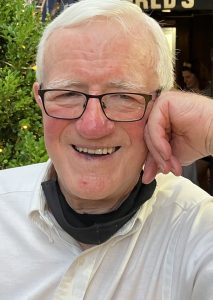Jim Newcomer, Ph.D.
You Have an Important Story to Tell. Make it Great
Editorial guidance and advice from first draft to publication-ready
Developmental & Line Editing – and Coaching
Support for writers.
I’ll just pour it all out here. This first essay is meant to give you a taste of who I am and how I might help you finish your project. For more meaty aspects — like how to find me and what writers have said about me – skip ahead down the page and don’t waste time on this introduction.
______
Whether you are a beginning writer or a veteran, you want to gain and hold your readers’ interest, You need a supporter to ensure that your story’s pacing is right, that your voice shines through, that your characters are vivid, and that readers can follow you MC through the whole journey. And to be a truly great writer, you’ll want to take us readers to places where we see in our hearts things that are fundamental to all our lives.
Oh, and did I mention complete, grammatical, coherent, and significant?
On the practical side, I offer a few other benefits that you may not have anticipated, but nearly all my clients have rejoiced in:
(1) speeding up the process – You may have what it takes to write a brilliant work, but revision can be confusing. Complicated. How do you know if you spent too much time explaining your MC’s motives and stakes? Or describing the scene? Or if you skipped over your setting so quickly that your reader can’t understand your MC’s choices?
(2) bringing to you back to BIC (butt in chair), the sine qua non quality of every writer. When things begin to drag and people gain your attention to other things, a note from your editor works like magic to regain your attention.
(3) Avoiding wrong advice from someone who tells you they know it all. It’s important that the suggestions you receive point you in the right direction. Wrong advice may mean you spend valuable time discovering the path back to the main road – if you discover it at all.
Above All – Getting it Right so you achieve what you started out to do: write a good, perhaps even great, book that you are proud of and that readers want to read.
If you want to reach readers I invite you to work with me. I am a professional who will be on your side – demanding high standards; encouraging as well as challenging you.
I’ll ask you what your purpose is in writing. I’ll demand your best writing, and I’ll point out unneeded words and suggest ways to remodel awkward sentences. I’ll suggest aspects of the story that may be missing, leading you deeper into self-discovery, and I’ll respect your true voice.
If you look at my Portfolio page, you’ll see that I have a range of interests and experience. In addition to memoirs, these include:
- Non-fiction, focused on sustainability and environmental issues, politics, and history (My Ph.D. is in Political Science.)
- Literary and Historical Fiction
- Academic – Social Sciences (with experience editing texts by Chinese scholars in English)
I also work in the fields of the practical – newsletters that need editing, web copy that isn’t quite right – yet – and reports that you want to organize so that recipients can read and understand them easily.
If you are writing, and you this seems right to you, we might be a good fit. The probability is high enough that it’s worth exploring further.
So go ahead, start by exploring. Scroll down to the Contact Me button next to my photo toward the bottom. Use it and let’s see where it leads.
The important guide for us both is that I succeed when you succeed. That’s the only way it works.

How to Write a Memoir
and
The Power of Voice:
A Note on Both:
As a bonus here are some Choice Quotations from Mary Karr’s great book, The Art of Memoir that vividly illustrate both points (but you have to listen to the voice for yourself):
“Asking me how to write a memoir is a little like saying, ‘I really want to have sex, where do I start?’ What one person fantasizes about would ruin the romance for another. It depends on how you’re constructed inside and out, hormone levels, psychology. Or it’s like saying, ‘I want a makeover, how should I look?’ A Goth girl’s not inclined to lime-green Fair Isle sweaters, and a preppy scorns black lipstick.”
Here’s another, same book:
“It’s harder [than telling stories in person] to translate lived experience onto a page. A story told poorly is life made small by words. The key details are missing, and the sentences might have been spoken by anybody. We need a special verbal device to unpack all that’s hidden in the writer’s heart so we can freshly relive it: a voice.
“Unfortunately, nobody tells a writer how hard cobbling together a voice is. Look under ‘voice’ in a writing textbook, and they talk about things that seem mechanical – tone, diction, syntax. . . . For me psyche equals voice, so your own psyche – how you think and see and wonder and scudge and suffer – also determines such factors as pacing and what you write about when. Since all such literary decisions for a memoirist are offshoots of character, I often find that any bafflement I face on the page about these factors is instantly answered once I find the right voice.”
What Writers I Have Worked With Say:
SERVICES INCLUDE
Developmental Editing
I read Your Draft for the big. structural issues, raising questions that include, first, is it significant? Does it matter? Do you make your reader care?
Then: Is it coherent? What Makes it Work (or Not)?
Are characters and story arcs clear? Does your protagonist face a challenge and act to overcome it – and change in the process? Are the Stakes high enough to matter?
Taking it scene by scene –does each scene do what’s needed? The pacing – does the narrative slow down or lose its way? How could you strengthen it (or rescue it)?
Line Editing
Are your chapters and scenes placed in the right order? Does each scene have a structure that makes sense to your readers?
Your paragraphs and sentences – are they clear and readable, and have you placed them in the right order so as the trajectory unfolds it is clear to your reader?
When Richard Simon was an editor at Simon and Schuster, they say he gave every staff member a bronze paperweight that read:
“GIVE THE READER A BREAK.”
This is when the first red pencil work begins
Copy editing
This is the stage that gets us down to honing individual sentences and paragraphs, the kind of editing we usually associate with the red pencil and the squiggles between lines.
While I do not claim to be a copyeditor, I can seldom restrain my urges to fix sentences and catch spelling and grammar errors as I go.
It’s the traffic cop in me. I won’t apologize, because my persnickety reading helps you improve your writing.
I often find sentences that would work better if you shortened or combined them. Or if you shifted from the passive to active voice. Or put the subject of the sentence where it belongs. The point is to make your reader want to read more.
Coaching
Some of my clients have relied on me to support them along the path, and I do it with ongoing conversations, mostly for free. I ask questions, dig for information, encourage by pointing out the good parts, and suggest things that keep their BICs, and therefore their projects alive and moving ahead.
This has been for me the most rewarding aspect of the work, but it seldom starts as a coaching engagement. Usually we start with developmental editing, and it just turns into coaching as we go along working together on a long and significant book.
Isn’t that what you want to write?
My Promises to You, the Writer
I promise quick responses and a close, supportive relationship.
When you write a memoir, especially, editor and writer need to build mutual trust. You are, after all, revealing deep issues, the fundamental values of your life, Your editor must respect your process as well as he respects you. I promise that respect, and I also promise that while I will point out your triumphs, the places where your genius shines, I will maintain an unwavering standard of professional quality that will guide you toward producing great writing.
I have an idol, a great editor, the late Robert Gottlieb, and in Avid Reader, his autobiography, he set out the rules he followed, which I emulate. He wrote what he considered the basics of editing:
- ‘Get back to your writers right away.’
- ‘It’s the writer’s book, not yours.’
- ‘Try to help make the book a better version of what it is, not into something that it isn’t.’
- ‘Spend your strength and your ego in the service of the writer, not for their own sake – or yours.’ And
- ‘It’s a service job.’”
Those are the promises I make to my writers, and I do my best to keep them.
Member:



For a free sample edit and consultation (500-1,000 words or so), click on the Contact Me button and tell me about it. Let’s begin a conversation.
Don't Miss a Post!
Sign up for my Newsletter
and
get the latest straight to your inbox
A Word About Rates
Getting real for a moment: a note about my rates: I base my rate on EFA averages. So they are reasonable – more than a carpenter, less than a software engineer. No surprise there.
Normally I work fast, and I like to charge by the hour, since editing is different for every client, every draft. That, of course, implies an element of trust.
But if you feel more comfortable paying by the word, I can charge that way.
In that case I’ll ask for a sample (500-1000 words) to edit and estimate the speed at which I might work – and then give you a per-word rate.
